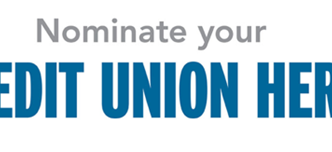Financial coaching has a positive impact on credit unions and their members, according to a new brief by Inclusiv, a nonprofit dedicated to promoting financial inclusion in low-income communities through community development credit unions (CDCUs), and Neighborhood Trust Financial Partners, a national nonprofit financial counseling provider. The paper, “The Social and Financial Impact of Financial Counseling in Credit Unions,” published with support from MetLife Foundation, analyzes the social and financial impact of Pathways to Financial Empowerment (Pathways), the first outcome-tracking platform that leverages technology for the delivery of best-in-class financial coaching and counseling to improve the financial health of credit union members.
Through Pathways, credit union financial coaches learn to deliver best practice financial coaching and utilize the Pathways impact-tracking platform to measure members’ financial health progress. Launched in 2015, Pathways helps credit unions integrate financial coaching into their operations so products and services are delivered as part of a member’s holistic financial plan.
Inclusiv and Neighborhood Trust found that credit union members who participate in financial coaching gain access to affordable credit and products and improve their financial health. Additionally, financial coaching supports the financial health of credit unions, increasing the number of members who are eligible for financial products and demonstrating returns on investing in financial coaching as a service.
Of clients who participated in Pathways financial coaching:
- 58% improved their credit score, with an average improvement of 38 points, six-to-12 months after an initial coaching session.
- Nearly one in five subprime clients improved their credit score enough to rise above the 620 threshold, significantly expanding their access to affordable products. Among this group, the average score increase was a dramatic 66 points.
- Roughly 10% opened new savings accounts at their credit unions (including CDs, money market, etc.) totaling $740,084, which is especially impressive considering their median income is only $26,000.
- Through first quarter of 2019, clients have already taken out over 3,000 new loans—totaling nearly $22 million—at credit unions, including small dollar personal loans, credit builder loans, auto loans, credit cards and home equity loans.
- Clients who have taken out small dollar personal loans are saving anywhere from 100% to 600% in interest when compared to a typical payday loan and are successful in those loans with a delinquency rate of just 3%, lower than the US personal loan delinquency rate for all credit tiers of 3.6% and half of the 6% average default rate for payday loans.
- Auto borrowers have saved $525,000 in interest at an average of nearly $1,000 per person.
- Generating revenue by growing responsible lending to borrowers with subprime credit scores, people who would have been rejected for loans and gone elsewhere if not for financial coaching;
- Mitigating the risk of losses by providing financial coaching to borrowers who might have otherwise defaulted; and
- Raising additional revenue from new products informed by financial coaching and that better meet the needs of their membership.





